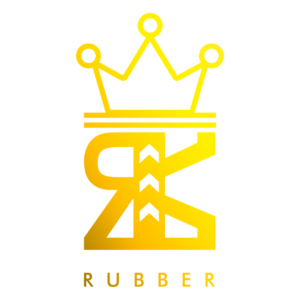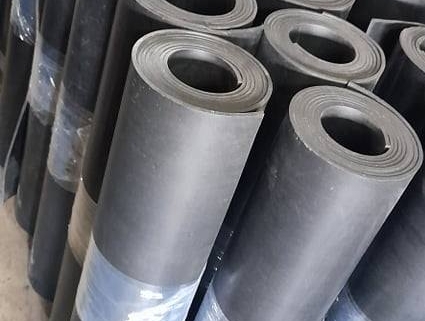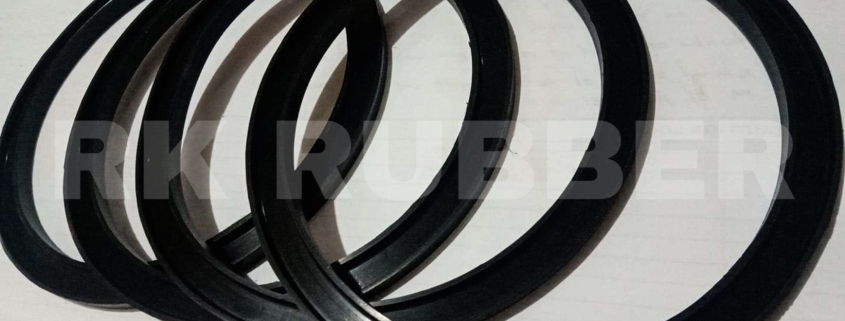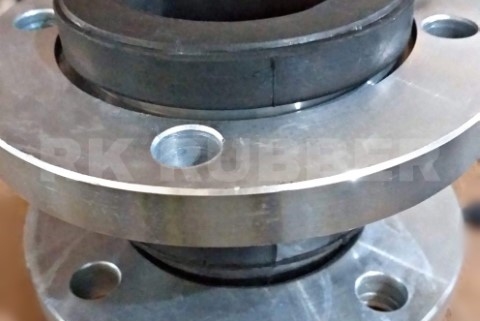Rubber Sheet
Rubber Sheet Manufacturer in the Philippines | RK Rubber Enterprise Co.
RK Rubber Enterprise Co. is a leading manufacturer of high-quality rubber sheets in the Philippines, catering to various industrial applications and industries through its extensive range of rubber sheet products. Its state-of-the-art equipment and strict quality control measures guarantee high durability and elasticity in compound materials. The company offers diverse types of rubber sheets, including natural rubber, neoprene, nitrile, EPDM, and silicone rubber, each designed to meet specific industry requirements. From construction to medical applications, RK Rubber Enterprise Co.’s products provide reliable solutions, and their commitment to innovation and customer satisfaction drives further product development, shaping the industry’s future.
Key Points
- RK Rubber Enterprise is a leading manufacturer of high-quality rubber sheets in the Philippines, serving various industrial applications.
- The company utilizes state-of-the-art equipment and adheres to rigorous quality control measures to ensure product durability and elasticity.
- RK Rubber Enterprise offers diverse compound materials, including Natural Rubber, Neoprene Rubber, Nitrile Rubber, EPDM Rubber, and Silicone Rubber.
- Their rubber sheets are widely used in construction, automotive, electronics, medical, aerospace, and marine industries due to their excellent insulation properties and chemical resistance.
- RK Rubber Enterprise is committed to innovation, customer satisfaction, and sustainability, with a strong focus on research and development to advance rubber sheet technology.
Key Features of Rubber Sheets
Their key features are essential to the functionality and versatility of rubber sheets, which include durability, flexibility, and resistance to extreme conditions. These characteristics make rubber sheets ideal for a wide range of applications across various industries. Durability allows them to withstand harsh environmental conditions, while flexibility enables them to be molded into various shapes and sizes.
Rubber sheets are also resistant to extreme temperatures, chemicals, and vibrations, making them suitable for use in factories, laboratories, and other industrial settings. Additionally, their chemical resistance protects against oil, chemicals, gas, and corrosion, further expanding their potential applications. The flexibility of rubber sheets also eliminates vibration and noise, adapting to uneven surfaces and providing a reliable seal.
Customizable options are also available, allowing for specific properties such as oil resistance, slip resistance, and noise reduction to be incorporated into the rubber sheets. This flexibility and cost-effectiveness make rubber sheets an attractive alternative to metal sheets in many applications.
Manufacturing and Production Process
Manufacturing and production of rubber sheets involve a combination of processes that transform raw materials into high-quality, versatile products. This complex process involves various stages that require precise control to guarantee the desired properties and quality of the final product.
| Process Stage | Description |
|---|---|
| Compounding | Mixing raw materials, such as rubber, fillers, and additives, creates a uniform compound. |
| Vulcanization | Heating the compound under pressure to create a cross-linked network for strength and elasticity. |
| Calendering | Rolling the vulcanized compound into thin sheets for uniformity. |
| Cutting | Cutting the sheets to precise sizes based on industry requirements. |
| Quality Control | Inspecting the final product for defects and testing its properties to guarantee compliance with industry standards. |
The manufacturing process of rubber sheets requires careful attention to detail and strict quality control measures to guarantee the production of high-quality products. At RK Rubber Enterprise Co., we utilize state-of-the-art equipment and follow established protocols to ensure the excellence of our rubber sheets.
Industrial Applications and Uses
Numerous industries worldwide rely on rubber sheets as an integral component of their operations. These sheets are used in various applications, including gaskets, seals, vibration-damping pads, flooring, and roofing. The construction industry, for instance, utilizes rubber sheets for waterproofing and roofing applications, while the automotive industry employs them in the production of gaskets, seals, mats, and belts.
Rubber sheets are also essential in the electronics industry, serving as insulating materials to prevent electrical hazards. In the medical field, they are used in surgical and dental applications and as protective barriers. Additionally, rubber sheets are used in the aerospace, marine, and agricultural industries, providing protective solutions for machinery and equipment.
Their versatility and durability make rubber sheets vital in various industrial applications. RK Rubber Enterprise Co. offers a range of rubber sheet products that cater to specific industry requirements, ensuring that customers receive the right material for their needs. Our rubber sheets provide a cost-effective solution for industries that require durability, elasticity, and resistance to extreme conditions.
Benefits of Using Rubber Sheets
The benefits of using rubber sheets in various industrial applications are multifaceted and significant. Rubber sheets offer numerous advantages, including durability, flexibility, and resistance to extreme conditions. These properties make them an ideal choice for various industries, such as construction, automotive, and manufacturing.
| Benefits | Description | Applications |
|---|---|---|
| Durability | Resistance to wear and tear, high tensile strength | Construction, manufacturing, automotive |
| Flexibility | Ability to be molded into various shapes and sizes | Flooring, roofing, vibration-damping pads |
| Chemical Resistance | Resistance to oils, chemicals, and corrosive substances | Gaskets, seals, waterproofing applications |
| Cost-Effectiveness | Generally cost-effective compared to other materials with similar properties | Industrial, commercial, and residential applications |
The benefits of using rubber sheets extend beyond their durability and flexibility. They also provide excellent insulation properties, making them suitable for electrical and thermal insulation purposes. Additionally, rubber sheets can be customized to meet specific industry requirements, providing a tailored solution for various applications. Overall, the benefits of using rubber sheets make them an essential component in various industrial applications.
Types of Rubber Sheets Available
Different types of rubber sheets are available to cater to the diverse needs of various industries. These types include Natural Rubber (NR), Neoprene Rubber (CR), Nitrile Rubber (NBR), EPDM Rubber (Ethylene Propylene Diene Monomer), Silicone Rubber, and SBR (Styrene-Butadiene Rubber). Each rubber sheet type has unique properties that make it suitable for specific applications.
Natural Rubber is known for its high tensile strength, good elasticity, and resistance to wear and tear. Neoprene Rubber offers excellent resistance to oil, chemicals, and weathering, while Nitrile Rubber provides high resistance to oils and fuels. EPDM Rubber has superior resistance to weather, ozone, and UV rays, making it ideal for outdoor applications. Silicone Rubber is known for its excellent temperature resistance and flexibility, making it suitable for use in extreme environments. SBR offers good abrasion resistance and aging stability. Understanding the properties of each type of rubber sheet is essential in selecting the right material for a specific application. RK Rubber Enterprise Co. offers a range of rubber sheet types to cater to the diverse needs of various industries.
Advantages and Limitations of Rubber
Rubber sheets offer a unique combination of properties, making them an essential material in various industries. They exhibit durability, flexibility, and resistance to extreme conditions, making them ideal for applications where other materials may fail. The advantages of rubber sheets include their high temperature tolerance, chemical resistance, and cost-effectiveness. They can also provide excellent electrical and thermal insulation, making them suitable for use in various applications.
However, rubber sheets also have limitations. One major limitation is their sensitivity to certain chemicals, which can cause them to degrade or lose their shape. Additionally, some types of rubber sheets can be heavy and cumbersome to handle and install. They may also have a strong odor, which can be a disadvantage in certain applications. Moreover, rubber sheets can be sensitive to extreme temperatures, which can affect their performance and lifespan. Despite these limitations, rubber sheets remain a popular choice for various industries due to their versatility and unique combination of properties. By understanding the advantages and limitations of rubber sheets, manufacturers and users can select the most suitable type for their specific application.
RK Rubber Enterprise Company Overview
Manufacturing excellence in the Philippines is exemplified by RK Rubber Enterprise Co., a leading provider of high-quality rubber sheet products. Established in the Philippines, the company specializes in producing a diverse range of compound materials with a focus on durability, elasticity, and cost-effectiveness. RK Rubber Enterprise Co. places a strong emphasis on quality control during production, ensuring that its rubber sheet products meet the highest standards of the industry.
With a focus on customer satisfaction and service, the company is committed to tailoring its products to meet specific industry requirements. This approach has enabled RK Rubber Enterprise Co. to establish a strong reputation in various industrial applications. The company’s extensive distribution network allows it to cater to a broad market reach, making its products easily accessible to customers across the region.
RK Rubber Enterprise Co.’s commitment to innovation and customer satisfaction has positioned it as a trusted partner for industries seeking high-quality rubber sheet products.
Why Choose RK Rubber Enterprise Co
RK Rubber Enterprise Co.’s success in the Philippine market can be attributed to its unwavering commitment to quality, innovation, and customer satisfaction. The company’s dedication to producing high-quality rubber sheets has earned it a reputation as a reliable supplier in various industries. By investing in research and development, RK Rubber Enterprise Co. stays ahead of the curve regarding rubber compound technology, guaranteeing its products meet the evolving needs of its customers.
The company’s ability to tailor products to specific industry requirements has also contributed to its success. With a diverse range of compound materials, RK Rubber Enterprise Co. can provide customers with customized solutions that cater to their unique needs. Additionally, the company’s strong focus on quality control during production guarantees that all products meet the highest standards of quality and durability.
Frequently Asked Questions
What Is the Typical Shelf Life of Rubber Sheets?
The typical shelf life of rubber sheets depends on factors such as storage conditions, material type, and exposure to environmental elements. Generally, rubber sheets can last from 2 to 10 years, with some lasting up to 20 years.
Can I Customize the Color of My Rubber Sheets?
Customization of rubber sheet colors is possible through various pigmentation techniques. Manufacturers can incorporate colorants into the rubber compound during production, allowing for a range of hues to suit specific industry or aesthetic requirements.
Are Rubber Sheets Resistant to UV Radiation Damage?
Rubber sheets exhibit varying levels of resistance to UV radiation damage, with certain types such as EPDM and silicone rubber demonstrating superior resistance to UV degradation, while others like natural rubber may require protective coatings.
How Do I Store Rubber Sheets to Prolong Their Lifespan?
To prolong rubber sheets’ lifespan, store them in a cool, dry area away from direct sunlight and chemicals. Maintain a consistent temperature between 60-80°F (15-27°C) and relative humidity below 60%.
Can I Recycle or Reuse Old Rubber Sheets?
Recycling or reusing old rubber sheets is feasible, depending on their condition and type. Repurposing can be done through vulcanization, molding, or shredding; however, degradation and contamination must be assessed prior to processing.
Conclusion
To summarize, rubber sheets have become an essential component in various industries due to their diverse range of properties. RK Rubber Enterprise Co.’s commitment to quality control, innovation, and sustainability makes it a key player in the market. The company’s expertise in manufacturing high-quality rubber sheets tailored to specific industry requirements underscores its position as a reliable partner for industries seeking efficient solutions. This expertise, combined with the versatility of rubber sheets, guarantees their continued importance in various industrial applications.



